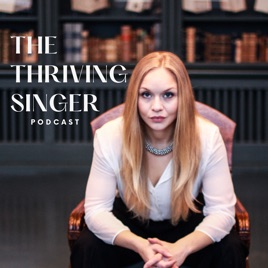
Advertise on podcast: The thriving singer's podcast
Rating
5 from
Country
This podcast has
18 episodes
Language
Publisher
Explicit
Yes
Date created
2021/05/10
Average duration
28 min.
Release period
18 days
Description
This show will help singer artists evolve their mindset, practice, and business habits to build a career that will thrive! How do I practice those high notes? How do I tackle all that rejection? How do I manage my time when singing is not my only job? Where do I start building my career after school? Your host, Hrund Osk, is a freelance opera singer and vocal coach, and together with you, she will break drown these types of questions and so much more! She'll give actionable tips to help you along on your journey to building a thriving life as a singer!
Podcast episodes
Check latest episodes from The thriving singer's podcast podcast
Shirley Tennyson on the most common vocal disorders in vocal performers. The mechanisms of the Passagio, the importance of posture in singing, the dos and don'ts of vocal hygiene and vocal conservation, and the importance of a healthy speaking voice.
2022/06/15
Shirley Tennyson, MA, EdM CCC-SLP, is a certified Speech-Language Pathologist with a particular interest and training in voice disorders. She graduated with Master's Degrees from Ohio University and Columbia University.
Her specialty is working with people who have voice disorders caused by such things as polyps, nodules, or cysts on the vocal folds, a paralyzed vocal fold, atrophied vocal folds, as well as voice problems resulting from neurological conditions, e.g., spasmodic dysphonia, Parkinson Disease, etc.
As a singer/actor herself, she particularly enjoys helping singers of all genres, actors, and performers resolve their vocal issues. Anyone who relies on his or her voice to earn a living is considered to be a professional voice user. This would include teachers, clergy, attorneys, salespeople, and receptionists just to name a few.
In our discussion today we talk about the most common vocal disorders in performers i.e nodules, polyps, vocal fold hemorrhage, and Edema, what they are, and how they form.
How problems with the singing voice can often be traced back to how you use your speaking voice. We discuss the mechanisms of the Passagio. We discuss why posture is so important to accessing your optimal sound, the dos and don’ts of vocal hygiene and vocal conservation, and last but not least breath.
Connect with Shirley Tennyson, MA, EdM CCC-SLP
Linkedin | email mentioned at the end of the interview
Links to resources mentioned: https://www.essentricstv.com Alexander Technique Feldenkreis
more
Dr. Benjamin Asher on how the psycho-emotional state of singers can keep them stuck, trauma, grief, fear, stage fright, self-sabotage, abusive teachers, and finding your true “Why”
2022/05/25
Today’s guest is Dr. Benjamin Asher a New York based, board-certified Otolaryngologist - Head and Neck Surgeon.
In addition to being a highly- regarded conventional physician and exceptional diagnostician, he has been at the forefront of applying alternative methods to Ear, nose, and throat disorders since the beginning of his medical career over thirty years ago.
Dr. Asher’s conventional training includes the University of Iowa which is the preeminent Otolaryngology residency in America, where he was selected to serve as Chief Resident. Harvard Medical School, where he completed a fellowship in Pediatric ENT. He has served on the faculty of Harvard, Washington University, and Dartmouth medical schools.
His study of complementary healing modalities includes cranial osteopathy, hypnosis, myofascial therapy, the Feldenkrais Method, the Alexander Technique, and various energy medicine modalities. Dr. Asher works in cooperation with acupuncturists, chiropractors, and somatic healers as well as Ayurvedic, homeopathic, and naturopathic physicians.
Dr. Asher is credited as the physician who discovered that boosting Glutathione, a substance naturally produced by the body, had a profoundly positive impact on the voice and could often be used in place of steroids or vocal cord surgery.
His unique ability and steadfast desire to protect performers from the harsh, long-term side effects of conventional medical approaches have made him a valued team member for numerous theatrical, concert, film, and television performers. He has served as house physician for the New York City Opera and the New York City Ballet.
In our discussion today we talk about how western medicine is not all that great for treating chronic illness and how understanding people from the level of spirit and looking at the bigger picture is a foundation for how Dr.Asher works with people.
We talk about how psycho-emotional issues such as grief and trauma keep performers stuck. Self-sabotage, and the inability to move forward with one's career. We discuss wrongly diagnosed acid reflux and how antacids can have bad long-term health implications. How the process of singing and learning voice can be traumatizing because of abusive teachers and how fear and stage fright can develop because of it and why listening to your inner voice and knowing your “why” is crucial in the performing arts and so much more.
Connect with Dr. Benjamin Asher:
Facebook | Website
Links to resources mentioned: “The undiscovered self” by Carl Jung “The body keeps the score” by Bessel van der Kolk M.D. Immune boosting supplement: “Immunokinoko” Dr. Gallands TLC: Black Cumin seed oil Trauma Therapy: EMDR, Somatic Experiencing based on the work of Peter Levine, Hakomi
more
David Jones voice teacher and vocal pedagogue on collaborative teaching, what determines a voice type and diagnosing Fach, the psychology of teaching, connecting mind and body and voice trauma.
2022/04/07
Today’s guest and my very first guest on the Thriving singer podcast is non-other than the great David Jones, who has developed an international career as an author, vocal pedagogue, teacher of singers, and teachers in Europe and the U.S. David is celebrating 50 successful years of teaching the fall of 2022
He has trained singers performing at opera houses and festivals such as the New York City Opera, San Francisco Opera, the Metropolitan Opera, Chicago Lyric Opera, Berlin Staatsoper, Vienna Staatsoper, Opera North U.K. the Royal Opera House at Covent Garden, the Glyndebourne Opera Festival, Salzburg Festival, and L’Opera Bastille in Paris.
David Jones is a graduate of Texas Christian University with graduate research at the University of North Texas. Having also researched at the Groningen University Hospital (Groningen, The Netherlands) and the Laboratoire de la Voix Voice Clinic in Paris, he has had the opportunity to study how Old World concepts can be therapeutic in treating voice disorders. He also works in conjunction with the practice of Laryngologist Dr. Benjamin Asher in New York.
In 1979, he studied with internationally known vocal pedagogue Allan R. Lindquest (1891-1984), founding member of NATS and the Amercian Academy of Teachers of Singing. It was through Mr. Jones’ study with Lindquest that he learned the concepts of Lindquest’s teachers, which included Enrico Caruso, Mme. Ingebjard-Isene (teacher of Flagstad), Joseph Hislop, Maestro Rosati (teacher of Gigli), and Mme. Novikova. Additional instructors of the Lindquest concepts with whom David Jones studied include Virginia Botkin, Dr. Suzanne Hickman, and Dr. Barbara Mathis, who performed scientific research on the therapeutic benefits of the exercises. It was through this study that Mr. Jones studied the concepts of the Swedish-Italian School of singing.
In 1982, Mr. Jones studied with Dixie Neill, the primary teacher of Ben Hepner, and later with Dr. Evelyn Reynolds. Dr. Reynold's teachers included Lola Fletcher (student of Herbert Witherspoon), tenor Hollis Arment, William Vennard, author of “Singing: The Mechanism and the Technique”, and Ralph Erolle, instructor of the well-known soprano Arleen Auger.
David Jones has trained singers performing at such opera houses and festivals as the New York City Opera, San Francisco Opera, the Metropolitan Opera, Chicago Lyric Opera, Berlin Staatsoper, Vienna Staatsoper, Opera North U.K. the Royal Opera House at Covent Garden, the Glyndebourne Opera Festival, Salzburg Festival, and L’Opera Bastille in Paris. Mr. Jones has been published by both European NATS and Classical Singer Magazine.
Presenting seminars for teachers twice yearly in New York City and in Europe, he now dedicates his energy toward sharing information with teachers, writing articles, and teaching in his New York Studio and in Europe.
In our interview we travel far and wide, exploring how he got into the world of singing and how he gathered and refined the concepts he now teaches.
We talk about vocal trauma and what causes it, the importance of sensations in singing, diagnosing Fach, and what a voice type consists of. We talk about collaborative teaching, and problem-solving together with the student, making them aware of the process.
We dive into the realm of feeling safe in a voice lesson and what not to put up with. How some teachers might be qualified in their information but not in the psychology of teaching.
Connecting mind and body through work such as Feldenkreis or Alexander Technique and the importance of identifying and releasing tension whatever the cause may be. And last but not least how to work with different coaches while keeping your technique. And many other things connected to healthy singing.
Links to resources mentioned: Connect with David Jones
david@teacher.com | Facebook : The David Jones Voice Studio | Website : voiceteacher.com
Article: Taking a professional coaching and protecting your vo
more
How can I create the same results at home as in my singing lesson?
2022/03/23
I think one of the most important things we should start to develop early on in our singing journey is ownership of our development.
By that, I mean learning in full detail how our instrument works and actively figuring out who we are and who we want to become.
The two factors in combination will in turn allow us not to give our power away to teachers, coaches, or any mentors along the way.
Enabling us to create and maintain autonomy over our art and our craft.
more
3 ways we create our own suffering as singers
2022/03/09
We can become very good at creating our own suffering consciously and unconsciously.
Today I look at just a few ways we can be causing ourselves unnecessary hurt and sadness.
Just being aware of them can break the cycle and make room for a healthier perspective.
more
The 3 pillars of performance flow
2022/02/22
We go into what I believe to be the 3 pillars of creating the state of flow in performance.
How not to get distracted by your thoughts, nerves, and fears. Practicing as if performing, being present, and honing your focus skills.
How to prepare and how to deliver!
xx
more
Plan B: Financial Security
2022/02/09
Why creating a stable financial income for yourself, that sustains you whilst also financing your dream is something you should be creating for yourself.
Getting started with generating ideas and generally thinking about what would be the best option for you.
Take advantage of the digital age, your many talents, and acquired knowledge to build something that you can be proud of.
more
How to deal with rejection and feedback
2022/01/25
If you live in a state of acceptance of your weaknesses and strengths and you know and trust that you are working on them you can handle any comment or crappy feedback given to you in an empowered way. By being able to analyze it and work with it objectively without it destroying your sense of self-worth.
Nobody should be able to touch or put a dent in your sense of self-worth, always remember that. If it happens, it is because we allow it to happen.
This episode is about how self-awareness will help you deal with rejection and feedback and how to build it!
hrundosk.com
more
How to plan a year of amazing singing!
2022/01/11
How to Create an overview of your goals and plan your whole year of practice for results that will show up in your performance.
With links to bonus worksheets to help you get started and keep going through the start, middle, and end of the year!
more
Get organized: my 3 favorite books on productivity!
2021/12/28
“I am a freelance artist therefore I am a business owner” or these days at least a brand!
If you get money for what you create, you fundamentally own and run a business/brand, be it a product or service.
Owning a business means owning a lot of jobs, that all need to be executed for the good of the whole.
Mastering your craft and becoming the best artist you can is obviously the most important thing and the activity you have to make room for the most, I mean, otherwise we wouldn’t have a product to sell!
So as a freelance artist your job is to be creative and create BUT it is not your only job!
If we also want to sell our product and make a living from it, being an artist becomes a multifaceted endeavour.
So today I wanted to talk about my 3 favourite books that cover the perfect productivity cocktail to be able to handle this multifaceted endeavour! The books cover creating systems we trust and follow, focusing on the essential tasks and getting out of our own way and actually doing what needs to get done.
Enjoy!
more
What is Art anyways?
2021/12/14
The fusion of master craftsmanship and creative power allows for flow to produce art.
I believe you can’t use the word art for your creative output unless it is combined with master craftsmanship! Beauty will only emerge if there is harmony in your energy, between what you have in you and how well the medium is built through which it comes out or flows through.
So what does it take to create flow or Art and how can you apply this to you and your process?! Listen now!
more
Getting back on the horse
2021/11/29
“Get back in the saddle” or “get back on that horse” Is my favorite metaphor for getting back at it if you get thrown off course, if something happens that makes you feel like you just can’t do anything more or pick up where you left off.
If this happens to me and I get thrown off my trajectory, I like to picture that horse, and myself climbing back on, gathering the reins in my hands and easing that horse into a walk or even a trot. It makes it feel simple and easy, one action step at a time.
Today I wanted to dive into how to get yourself motivated to "get back in the saddle" and get going again after a setback.
more
Podcast reviews
Read The thriving singer's podcast podcast reviews
Podcast sponsorship advertising
Start advertising on The thriving singer's podcast & sponsor relevant audience podcasts
You may also like these performing arts Podcasts

4.9
645
385
The Trap Set with Joe Wong
Joe Wong

4.7
48
999
Choice Classic Radio Drama & Horror | Old Time Radio
Choice Classic Radio

4.8
1333
26
The Strange Case of Starship Iris
Jessica Best (Procyon Podcast Network)
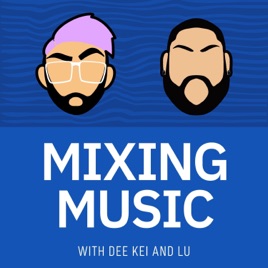
4.9
237
290
Mixing Music | Music Production, Audio Engineering, & Music Business
@DeeKeiMixes
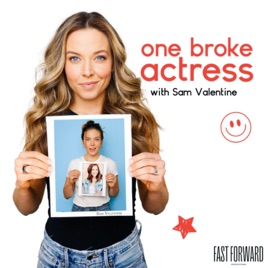
5
405
242
One Broke Actress Podcast
Sam Valentine
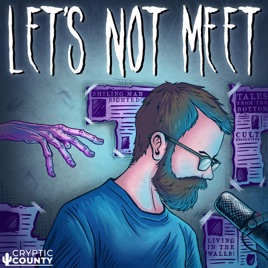
4.7
7786
319
Let's Not Meet: A True Horror Podcast
Andy Tate
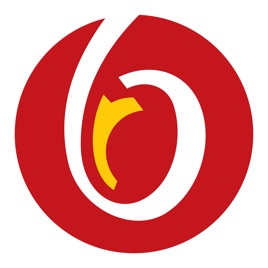
4.5
271
108
BroadwayRadio
BroadwayRadio

4.7
372
492
Nostalgic Mystery Radio
Stevie K.

4.5
284
7
The Archers Omnibus
BBC Radio 4

4.6
394
126
Relic Radio Thrillers (Old Time Radio)
RelicRadio.com



